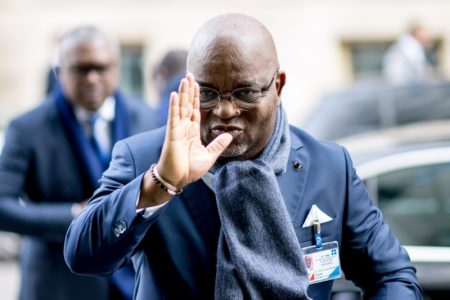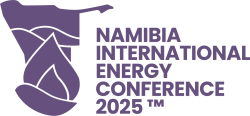 29 February 2012, Sweetcrude, Abuja – Nigeria Export Processing Zones Authority (NEPZA) in association with Oil and Gas Free Zone Authority (OGFZA),Onne and Century 21 Systems Communication Ltd, has announced the hosting of the 3rd Free Trade Zone Conference and Exhibition (FTZ Nigeria 2012) which will take place between 5th and 7th April 2012 at the Lagoon Restaurant, Victoria Island Lagos.
29 February 2012, Sweetcrude, Abuja – Nigeria Export Processing Zones Authority (NEPZA) in association with Oil and Gas Free Zone Authority (OGFZA),Onne and Century 21 Systems Communication Ltd, has announced the hosting of the 3rd Free Trade Zone Conference and Exhibition (FTZ Nigeria 2012) which will take place between 5th and 7th April 2012 at the Lagoon Restaurant, Victoria Island Lagos.
The free trade zone conference and exhibition which holds annually provide interface for stakeholders in the public and private sectors to make viable contributions to addressing Nigeria’s free trade, border and export processing zones challenges and opportunities.
In view of the changing regulatory and legislative landscape in Nigeria which has forced a monumental shift in business practice in the power and energy sector, this years edition tagged FTZ Nigeria 2012 is expected to bring the knowledge and experience of some of the top industry experts together to provide answers to questions on how Nigeria can use free trade zone to cope with deregulation in the downstream petroleum sector and opportunities out there for foreign direct investment including practical Nigeria content.
Engr Austen Oniwon the Group Managing Director of Nigeria National Petroleum Corporation and Mr Luk Haelterman the Managing Director of OK Free Trade Zone will lead the discussions that will also feature Mr Olumide Onakoya the Managing Director of Mobil Oil Nigeria Plc, Mr Francois Boussagol the Managing Director of Total Nigeria Plc among others.
According to Kenneth Odusola-Stevenson the Chief Executive of Century 21 Systems Communication Ltd and FTZ Nigeria Project Leader, It has long been the goal of Nigerian governments to diversify the country’s mainstay oil and gas sector and turn it into a base for the industrial development of the nation, with shifting attention to developing the downstream oil sector, particularly, oil refining and petrochemicals. At the free trade zones in Nigeria, the potential for growth is readily apparent as the Oil and Gas Free Trade Zone at Onne , Rivers state, Olokola Free Trade Zone in Ondo/Ogun state and Airline Services Export Processing Zone in Nigeria are unique visions that requires consolidation for the sustainability of the nations shared prosperity and the country’s comparative advantage, he said.
The Project leader also noted that,the programme for the three (3) days will be compelling,as the 2012 edition will build on the gains of the two previous meetings where more than 300 business leaders from 25 Nigeria headquartered companies and zones have participated in the annual FTZ Nigeria conference and exhibition since its inception in 2010.
FTZ Nigeria 2012 is the only dedicated event for the sector, that will feature in-depth insights and expert opinion from the Nigeria FTZ operators, Government Agencies and Public-Private sector business leaders.
Top executives and dignatories expected to speak include; Dr Olusegun Aganga the Minister of Trade and Investment; Mallam Sanusi Lamido Sanusi the Governor of Central Bank of Nigeria; Senator Idris Umar the Minister of Transport; Mr Ladi Jadesimi the Executive Chairman of Lagos Deep Offshore Logistic Base at LADOL. Others are Dr Noble Abe the President of Africa Free Trade Zones Association; Dr Sina Agboluaje the Managing Director of Nigeria Export Processing Zones Authority and Mr Bisi Onasanya the Group Managing Director of First Bank of Nigeria Plc among others interest including the members from States and National Assembly, and other relevant government ministries and departments.
Furthermore, it is expected that the event will draw participants from sectors such as financial services, oil and gas, ports and harbour, aviation, construction, agriculture, manufacturing and engineering including our Zones.
What makes Nigeria’s 25 licensed FTZs unique, however, is that companies operating in them are not required to export all of their products. Free zone tenants can sell goods into the domestic market. Beyond this additional incentive, the FTZs are appealing because these clusters of manufacturing activity can be served by purpose-built power plants operating independent of the national electrical grid, which is in severe disrepair. Adding other crucial pieces of infrastructure, such as ports, make Nigeria’s FTZs functional oases in the country’s unpredictable private sector.



